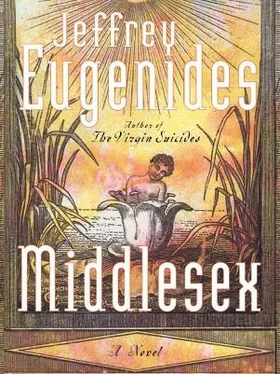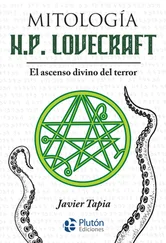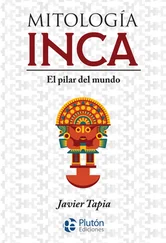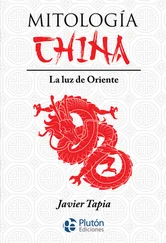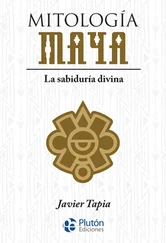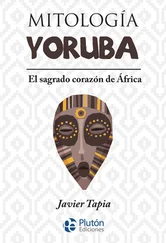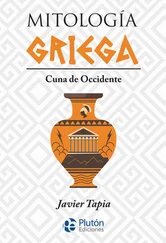The humming of my parents’ voices from behind my bedroom wall, which throughout my childhood had filled me with a sense of security, had now become a source of anxiety and panic. So I exchanged it for walls of marble, which echoed only with the sound of dripping water, of the flushing of my toilet, or of my voice softly reading The Iliad aloud.
And when I got tired of Homer, I started reading the walls.
That was another selling point of the basement bathroom. It was covered with graffiti. Upstairs, class photos showed rows and rows of student faces. Down here it was mostly bodies. Sketched in blue ink were little men with gigantic sexual parts. And women with enormous breasts. Also various permutations: men with dinky penises; and women with penises, too. It was an education both in what was and what might be. Over the gray marble this new, jagged etching of bodies doing things, growing parts, fitting together, changing shape. Plus also jokes, words to the wise, confessions. In one spot: “I love sex.” In another, “Patty C. is a slut.” Where else would a girl like me, hiding from the world a knowledge she didn’t quite understand herself—where else would she feel more comfortable than in this subterranean realm where people wrote down what they couldn’t say, where they gave voice to their most shameful longings and knowledge?
For that spring, while the crocuses bloomed, while the headmistress checked on the daffodil bulbs in the flower beds, Calliope, too, felt something budding. An obscure object all her own, which in addition to the need for privacy was responsible for bringing her down to the basement bathroom. A kind of crocus itself, just before flowering. A pink stem pushing up through dark new moss. But a strange kind of flower indeed, because it seemed to go through a number of seasons in a single day. It had its dormant winter when it slept underground. Five minutes later, it stirred in a private springtime. Sitting in class with a book in my lap, or riding home in car pool, I’d feel a thaw between my legs, the soil growing moist, a rich, peaty aroma rising, and then—while I pretended to memorize Latin verbs—the sudden, squirming life in the warm earth beneath my skirt. To the touch, the crocus sometimes felt soft and slippery, like the flesh of a worm. At other times it was as hard as a root.
How did Calliope feel about her crocus? This is at once the easiest and the hardest thing to explain. On the one hand she liked it. If she pressed the corner of a textbook against it, the sensation was pleasurable. This wasn’t new. It had always felt nice to apply pressure there. The crocus was part of her body, after all. There was no reason to ask questions.
But there were times when I felt that something was different about the way I was made. At Camp Ponshewaing I’d learned, on certain humid bunkhouse nights, of the bicycle seats and fence posts that had seduced my campmates at tender ages. Lizzie Barton, roasting a marshmallow on a stick, told us how she had become fond of the post of a leather saddle. Margaret Thompson was the first girl in town whose parents owned a massaging shower head. I added my own sense data to these clinical histories (that was the year I fell in love with gym ropes), but there remained a vague, indefinable gap between the stirrings my friends reported and the clutching ecstasy of my own dry spasms. Sometimes, hanging down from my top bunk into the beam of someone’s flashlight, I would finish my little self-revelation with “You know?” And in the dimness three or four stringy-haired girls would nod, once, and bite the corner of their lips, and shift their eyes away. They didn’t know.
I worried at times that my crocus was too elaborate a bloom, not a common perennial but a hothouse flower, a hybrid named by its originator like a rose. Iridescent Hellene. Pale Olympus. Greek Fire. But no—that wasn’t right. My crocus wasn’t for show. It was in a state of becoming and might turn out fine if I waited patiently. Maybe it happened like this to everybody. In the meantime, it was best to keep everything under wraps. Which was what I was doing down in the basement.
Another tradition at Baker & Inglis: every year the eighth graders put on a classical Greek play. Originally, these plays had been performed in the Middle School auditorium. But after Mr. da Silva took his trip to Greece, he got the idea of converting the hockey field into a theater. With its bleachers set into the slope and its natural acoustics, it was a perfect mini-Epidaurus. The custodial staff brought risers out and set up a stage on the grass.
The year of my infatuation with the Obscure Object, the play Mr. da Silva selected was Antigone . There were no auditions. Mr. da Silva filled the major roles with his pets from Advanced English. Everyone else he stuck in the chorus. So the cast list read like this: Joanne Maria Barbara Peracchio as Creon; Tina Kubek as Eurydice; Maxine Grossinger as Ismene. In the role of Antigone herself—the only real possibility from even a physical standpoint—was the Obscure Object. Her midterm grade had been only a C minus. Still, Mr. da Silva knew a star when he saw one.
“We have to learn all these lines?” asked Joanne Maria Barbara Peracchio at our first rehearsal. “In two weeks?”
“Learn what you can,” said Mr. da Silva. “Everyone’s going to be wearing a robe. You can keep your script underneath. Miss Fagles will also be our prompter. She’ll be in the orchestra pit.”
“We’re going to have an orchestra?” Maxine Grossinger wanted to know.
“The orchestra,” Mr. da Silva said, pointing to his recorder, “is I.”
“I hope it doesn’t rain,” said the Object.
“Will it rain the Friday after next?” said Mr. da Silva. “Why don’t we ask our Tiresias?” And then he turned to me.
You expected someone else? No, if the Obscure Object was perfect to play the avenging sister, I was a shoo-in to play the old, blind prophet. My wild hair suggested clairvoyance. My stoop made me appear brittle with age. My half-changed voice had a disembodied, inspired quality. Tiresias had also been a woman, of course. But I didn’t know that then. And it wasn’t mentioned in the script.
I didn’t care what part I played. All that mattered, all I could think about, was that now I would be near the Obscure Object. Not near her as I was during class, when it was impossible to speak. Not near her as I was in the lunchroom, when she was spitting milk at another table. But near her in rehearsals for a school play, with all the waiting around that implied, all the backstage intimacy, all the intense, fraught, giddy, emotional abandon brought on by assuming identities not your own.
“I don’t think we should use scripts,” the Obscure Object now declared. She had arrived for rehearsal looking professional, all her lines highlighted in yellow. Her sweater was tied around her shoulders like a cloak. “I think we should all memorize our lines.” She looked from face to face. “Otherwise it’ll be too fakey.”
Mr. da Silva was smiling. Learning lines would require effort on the Object’s part. A novel undertaking. “Antigone has far and away the most lines,” he said. “So if Antigone wants to be off book, then I think the rest of you should be off book, too.”
The other girls groaned. But Tiresias, already having a vision of the future, turned toward the Object. “I’ll go over your lines with you. If you want.”
The future. It was already happening. The Object was looking at me. The nictitating membranes were lifting. “Okay,” she said, distantly.
We agreed to meet the next day, a Tuesday evening. The Obscure Object wrote out her address and Tessie dropped me at the house. She was sitting on a green velvet sofa when I was shown into the library. Her oxfords were off but she still had her uniform on. Her long red hair was tied back, the better to do what she was doing, which was to light her cigarette. Sitting Indian style, the Object leaned forward, holding the cigarette in her mouth over a green ceramic lighter shaped like an artichoke. The lighter was low on fluid. She shook it and flicked the button with her thumb until at last a small flame shot out.
Читать дальше
Конец ознакомительного отрывка
Купить книгу
